British Independent Film Awards Winners 2013
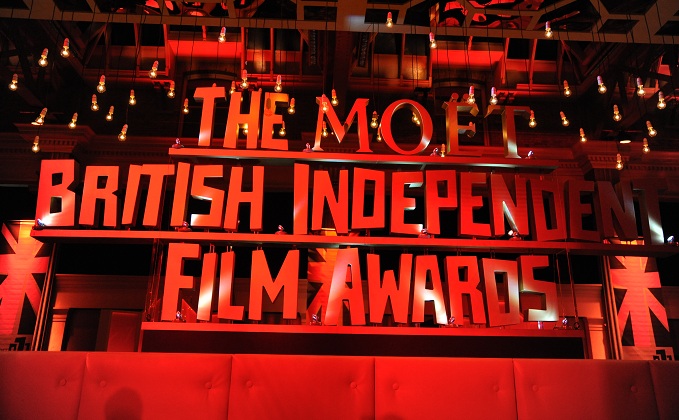
British talent turned out this evening for the 16th Moët British Independent Film Awards. The winners were announced at the star-studded ceremony, held at Old Billingsgate which was hosted by BIFA Winning actor James Nesbitt.
Best British Independent Film was won by Metro Manila with the film’s director Sean Ellis picking up Best Director.
Lindsay Duncan won Best Actress for Le We-kend and James McAvoy won Best Actor for Filth. Imogen Poots collected her BIFA for Best Supporting Actress for The Look Of Love and Ben Mendelsohn took home Best Supporting Actor for Starred Up.
Metro Manila won the most awards on the night, picking up three trophies for Best Achievement in Production and as previously mentioned Best Director award and Best British Independent Film.
Joint Directors, The Moët British Independent Film Awards Johanna von Fischer & Tessa Collinson said:
“This year our independent jury had an extremely tough job, they were asked to choose from an impressive pool of talent and creativity in a year where the diversity of storytelling is more extreme than ever. Thanks to an independent film industry which encompasses so many different cultures, personalities, visions and voices, Britain is producing a new generation of fearless artists both behind and in front of the camera who represent that richness of our diverse British society. With so many of the films exploring themes about being less judgmental and more forgiving, this perhaps reflects a movement within British independent filmmaking that brings much hope for the future.”
As previously announced, Julie Walters was awarded the coveted Richard Harris Award for outstanding contribution by an actor to British film, and Paul Greengrass the Variety Award, which recognises an actor, director, writer or producer who has helped to shine the international spotlight on the UK. The Special Jury Prize went to Sixteen Films & Friends (AKA Team Loach), in recognition of their contribution, bringing the work of Ken Loach to life.
Ben Roberts, Director of the BFI Film Fund said:
‘This has been a standout year for British film and the BIFAs has once again kicked off the awards season in style, putting the wild creativity and bold storytelling of the UK’s independent sector centre stage. Congratulations to all the winners and to the BIFAs for doing such a great job of spotlighting so many brilliant filmmakers.’
The Raindance Award was won by The Machine.
Elliot Grove, Founder of BIFA and the Raindance Film Festival added:
“The breadth, scope and quality of this year’s nominated films shows that British independent films and talent are not only the talk of the town but the talk of audiences everywhere.”
The Moët British Independent Film Awards are proud to announce the following winners for 2013
BEST BRITISH INDEPENDENT FILM Metro Manila
BEST DIRECTOR Sean Ellis – Metro Manila
BEST DEBUTE DIRECTOR Paul Wright – For Those in Peril
BEST SCREENPLAY Steven Knight – Locke
BEST ACTRESS Lindsay Duncan – Le Week-end
BEST ACTOR James McAvoy – Filth
BEST SUPPORTING ACTRES Imogen Poots – The Look Of Love
BEST SUPPORTING ACTOR Ben Mendelsohn – Starred Up
MOST PROMISING NEWCOMER Chloe Pirrie – Shell
BEST ACHIEVEMENT IN PRODUCTION Metro Manila
BEST TECHNICAL ACHIEVEMENT Amy Hubbard – Casting – The Selfish Giant
BEST DOCUMENTARY Pussy Riot – A Punk Prayer
BEST BRITISH SHORT Z1
BEST INTERNATIONAL INDEPENDENT FILM Blue is the Warmest Colour
THE RAINDANCE AWARD The Machine
THE RICHARD HARRIS AWARD Julie Walters
THE VARIETY AWARD Paul Greengrass
THE SPECIAL JURY PRIZE Sixteen Films & Friends (AKA Team Loach)
Ron Burgunday Anchors Real Life News Show
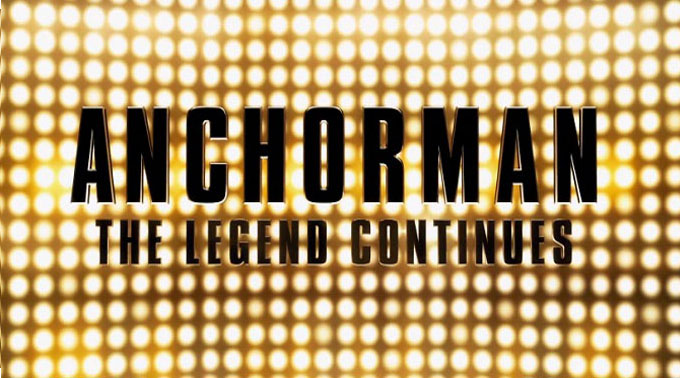
As part of his relentless promotion for the forthcoming Anchorman sequel Will Ferrell co-anchored an entire news show for a real life regional news channel. In character as mustached newsman Ron Burgundy, Ferrell co-hosted a full 30 minutes of KX News, a North Dakota Affiliate for the CBS news network.
Full video below so you can see Ron in all his glorious action, complete with a bonus video interview with Burgundy giving his reaction to the experience.
KXNet – Bismarck/Minot/Williston/Dickinson KXNet – Bismarck/Minot/Williston/Dickinson
Fast and Furious 7 Will Be Released
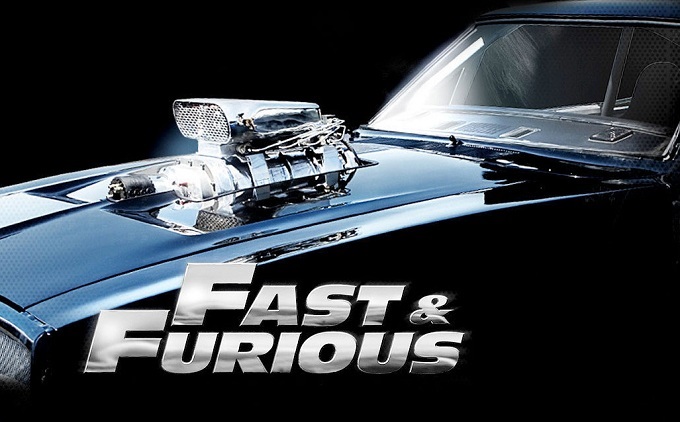
According to the Hollywood Reporter production on Fast and Furious 7 will continue in the wake of the tragic death of star Paul Walker. Various sources have suggested that much of the film had already been shot although admittedly filming had not yet been completed.
The cast of the high speed action franchise were set to return to filming in Atlanta after the thanksgiving holidays. While it’s clear that won’t be happening , it has already been suggested that the studio and cast are both committed to continuing the series.
The actor’s friend and co-star Tyrese Gibson spoke emotionally after visiting the scene of the devastating crash which claimed Walker’s life, seemingly confirming the resolve of the cast to continue with production:
“Paul is the heartbeat of this franchise and we’re gonna see to it that his energy and presence lives on forever.”
Whilst the massively popular series has already made over $2.4 billion at the box office the loss of star Walker obviously presents a complicated and sensitive dilemma for the studio. Particularly given the manner of Walker’s death and the fact the entire series is built around high speed car stunts. It remains unclear if fans would even feel able to watch Walker’s final performance given the uncomfortable parallels with his real life death. Let us know your thoughts in the comments…
Paul Walker Dies In Real Life Car Crash
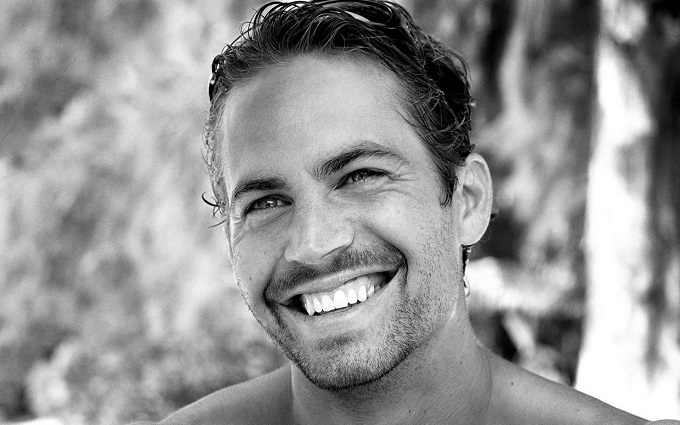
Fast and Furious star Paul Walker tragically died in Southern California this weekend following a horrific real life car crash. The 40 year old heartthrob actor was a passenger in a Porsche Carrera GT driven by his friend Roger Rodas which lost control and crashed into a light pole in Valencia before bursting into flames.
Walker had been attending a holiday toy drive for his charity Reach Out Worldwide shortly before taking the ultimately fatal drive in the high performance supercar. The stars official Facebook page confirmed the tragic news with the following statement:
“It is with a truly heavy heart that we must confirm that Paul Walker passed away today in a tragic car accident while attending a charity event for his organisation Reach Out Worldwide. He was a passenger in a friend’s car, in which both lost their lives. We… are stunned and saddened beyond belief by this news.”
Universal Pictures also issued an official statement reacting to the shocking news:
“Paul was truly one of the most beloved and respected members of our studio family for 14 years, and this loss is devastating to us, to everyone involved with the Fast & Furious films, and to countless fans. We send our deepest and most sincere condolences to Paul’s family.”
Walker had been working on the seventh instalment of the Fast and Furious car racing franchise. Vin Diesel and Ludacris both took to twitter to express their own shock and heartache at the loss of their fried and co-star.
Walker already has new Hurricane Katrina drama Hours set for release later this month, with District 13 remake Brick Mansions also completed. The future of the Fast and Furious series remains unclear as fans and the studio come to terms with the loss of Walker.
For the time being fans around the world have flooded Facebook pages and twitter with messages of love and support.
Edgar Wright The World’s End Interview
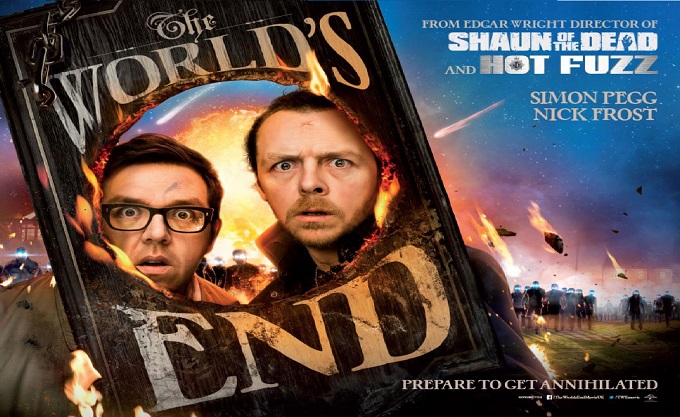
Red Carpet News TV sat down with director Edgar Wright to chat about apocalyptic sci-fi comedy The World’s End and finally completing the long awaited ‘Blood and Ice Cream trilogy’ with Simon Pegg and Nick Frost. The Scott Pilgrim director also spoke about his frustration at endless box office analysis replacing a genuine celebration of film. Edgar also talks a little bit about his forthcoming Marvel movie adaptation of Ant-Man. Full Interview below
Finally finishing the long awaited Cornetto trilogy did you feel a pressure to top the previous two, given the astonishing reaction of fan to Shaun of The dead and Hot Fuzz?
You have to blank it out. Maybe that’s why there was a bit of a break between Hot Fuzz and World’s End, so that we could go away for a bit. Funnily enough we had the idea for the story when we were promoting Hot Fuzz. I think the fact we took a bit of break made the film what it is. The other two films were personal in other ways. I know Hot Fuzz doesn’t feel like an autobiographical movie, because I’ve never been a police officer, but it is very much about my hometown and Simon’s upbringing as well. This film is a bit more obviously personal in terms of it’s about these friends getting older and getting overly nostalgic.
In a way you have to blank out expectation and try to make the film you want to make, that’s the only way you can do it. I think you have to make the film you want to make, not the film you think you ought to make. If you fall into that trap you’re on a hiding to nothing.
Did you always have the intention of making this kind of trilogy and what made you want to wrap things up the way you did with The World’s End?
It was never intended to be a trilogy, at least not until after we made Hot Fuzz. When we were making Shaun of The Dead we had no idea we’d be making another. We weren’t as cocky to think that there would be a second film. It wasn’t until after Shaun that we found out there’d be a chance to make a second one. The idea for Hot Fuzz came around and then after that the idea was maybe we could make this into a trilogy.
I think the reason we wanted to do it in a way was that even though it’s a thematic trilogy rather than three parts of the same story, there were still elements that we thought we could wrap up for good basically. They’re all sort of films about arrested development in different ways. Shaun of the dead is about a character that has to grow up, by the third one it’s become more severe, it’s about a character who wants to go back in time in a sense. The time machine in this movie is booze. He’s actually going to use alcohol to regress his adult friends to being teenagers again.
As soon as they start getting drunk lots of the surreal things that happen start to reflect being kids again. Even the aliens themselves are like action figures that can get torn apart and put together again, like toys. The blue blood is supposed to be like ink that reminds them of being at school and getting covered by fountain pen ink. It was something we wanted to do, something that had a big full stop. We were going to completely destroy the earth in this one, but it’s as much about the destruction of the earth as it is about one man on a course of self-destruction.
That was the idea in that we wanted to do something about getting old, the loss of that anchor to your hometown. If you live somewhere and move away when you go back it’s always a bittersweet experience. Both Simon and I have had that experience, so we wanted to make that into something like sci-fi epic.
The film has a flavour of H.P. Lovecraft or even classic British telly horror, were those influences you were specifically trying to emulate?
When we wrote Hot Fuzz we watched lots of cop films again, because we wanted all the cliché’s to filter in by osmosis. We thought if we watched enough of them it would start to seep in through our skin. But this time we watched two reunion moves. We didn’t need to re-watch any of the sci-fi, because we’d just grown up with it and I felt like it was already part of my consciousness. Not just through books Like John Christopher and John Wydam, but also so many movies that were on TV when I was growing up of this ilk. What I call the quiet invasion films, whether it’s Bodysnatchers, Invaders from Mars, Stepford Wives or Quatermass. Doctor Who ands the Avengers all those sort of TV shows also had that sort of vibe. Growing up in a small town it always spoke to me.
When you’re growing up and you start to analyse the reason why there in small towns you realise it’s to save money. It’s easier to do an invasion movie in a small town that London. Even if you look at American invasion films, it’s always in desert towns because it’s cheaper than setting things a quit New Mexico town that in New York or Los Angeles.
I grew up on those movies, so it was nice to take that form and fit it to a personal obsession about my hometown looking exactly the same as London thanks to the homogenisation of chains. One of the things that was funny when we were shooting Hot Fuzz was the scene where Nickolas Angel is riding up the high street on a horse. The town was supposed to be this sort of idyllic rural town, yet there was a Starbucks and a McDonald’s on the high street that we had to digitally remove form the shot. Just to make if feel like it wasn’t exactly the same as every other high street . That was something that stuck in my head.
It was very fun to do these movies where we take an established genre and put so much personal stuff into it. You always got taught in writing classes to write what you know and me and Simon would like to prove that you can do that with a Zombie film, a cop film and a sci-fi film.
World’s End feels like the most thematically complex movie you’ve done so far, how the story develop?
I guess it just grew organically. I guess we were just trying to be emotionally honest and stuff. People have said it’s the emotionally darkest of the trilogy but I don’t know if I necessarily agree with that. Simon and I would say that the ending of World’s end is actually sort of happier than the other two in a weird way. Even though the ending of Shaun of the Dead seems like he’s got the perfect set up with his flatmate and his girlfriend, he’s not actually progressed at all. If anything he’s gone right back to page one. He can’t leave his friend behind even though his friend is a monster. In Hot Fuzz the two of them have become fascists. This is very clear by the fact they’re wearing black gloves and sunglasses while beating up hippies in the final scene. In the world’s end everyone gets their own personal happy ending. It’s just the rest of the world that’s f***ked. For our five heroes one has become a better dad, one’s cornered the housing market, one’s finally got together with his teenage crush, one’s back with his wife as a proud hunter gatherer and the final one is back with his friends and not drinking.
There’s something about the post apocalypse, even though it’s a terrible grim thing, there is a sort of romanticism about it. I mean I’m sure anyone who watched Mad Max 2 thinks that it looks like it would be pretty cool to be in the post-apocalyptic wasteland, it looks kind of fun in that movie. Simon, Nick and I all have in the back of our heads this survivalist fantasy about going completely off the grid. Shutting everything down and pretending to be in Excalibur in the woods. All the Sisters of Mercy music videos have that sort of neo-medieval feel. What’s funny is the music video for the song This Corrosion which is featured in the film three times actually looks like ti could be the sequl to this movie!
A lot of people online seem to think Ben Wishaw has a cameo in the movie can you clear that up?
Ah, yeah it’s not it’s actually Ben Wishaw it’s an actor called Jonathan Aris, who is also in Sightseers as well. I don’t know where that rumour started actually.
Are there any references in the film you think people missed or ones that you were pleased fans noticed?
I think people start to get wind of lots of little details in there. We try to go through all of that on the Blu-ray. Usually over the course of all the Q&A events someone brings it up for the first time, like asking if it’s the same car in the background in every single shot. All the cars in the town in this film really are Vauxhall Amperas and they’re all blue and green. The colour of the blanks is all blue and green. All of the blanks are wearing blue or green clothes, including people who are about to be tuned. The people wearing blue and green in the poster are the ones who become robots.
There’s less references to other movies in this one than the first two parts of the trilogy. It’s more just about packing it with symbolism so that the second time you watch it you notice things. Like the shooting star that David Bradley mentions later in the film is actually I the opening scene. People watching the film a second time might start to understand what all the pubs names mean. The number of each pub is also actually hidden somewhere on set in each pub, so it counts from one to twelve. There’s lots of things like that you know.
Scott Pilgrim was a brilliant adaptation of Bryan Lee O’Malley’s work and a fantastic film, but does it frustrate you that the media seems to focus more on box office analysis now than actual commenting on the quality of films? Has that ever impacted your ability to make films exactly the way you want?
I don’t know, it didn’t really affect the making of Scott Pilgrim because you just have to get your head down and make the movie you want to make. You have to cut all of that noise out. I think if you try and predict the future you’ll end up with something strangely compromised. I try not to get too obsessed with box office prognosis stuff. Being a film fan I’m aware that the people who write those box office reports don’t actually like movies or watch movies at all. Films last longer than the first three days of the box office. There are plenty of massive hits that people never speak of again once they leave theatres. At least they never get seen on the big screen ever again.
What’s interesting to me or what’s funny about something like Scott Pilgrim is that it still plays at rep cinemas all the time. Even Mark Kermode showed it at the Belfast film festival recently. My brother went to see a midnight showing of it in LA the other day. It’s great that it’s still playing on the big screen. The films that were in the top ten biggest box office of the year, none of them have probably been back in theatres. I’d almost rather have that long life… although I’d love a massive massive hit too don’t get me wrong.
What’s your deal with Twins?
The twins thing is funny because I’ve got twins in everything I’ve done. Spaced, Shan, Hot Fuzz, Don’t, The World’s End all feature real identical twins. In Hot Fuzz even other than Bill Bailey there’s another set of twins played by Kevin and Nick Wilson. They’re actually in Shaun and World’s end as well. Then of course we’ve got Kelly and Stacey franklin. Someone once asked me why have you got an obsession with identical twins.. I think I just like symmetry. Also I think there’s never a bad shot with identical twins. It’ funny they’re in everything I’ve done. Now I have to find a way to get identical twins into Ant-Man to keep the continuity going. This is a world exclusive… the film will now feature identical twins. Not just the ants either, identical twin human! Somewhere I’ll get them in.
Speaking fo Ant-Man, you’re so enthusiastic about making personal stories, is that what excited you about Ant-Man, the opportunity to do something people aren’t necessarily expecting even from the Marvel universe?
What’s good about the Marvel comics are that usually they’re a bit more grounded, they have real world problems so that’s something that’s part of the characters and part of the screenplay. You always end up anchoring it with something that appeals to you. Even with the most crazy comicbook sci-fi you have to anchor it and keep it grounded to real characters and relationships that mean something outside of the Marvel Universe.
What’s the specific anchor for this character?
That’ll become clear in the movie. But for me personally I had two issues of Ant-Man when I was a kid. The first was an Incredible Hulk magazine in the late 70s that had a reprint of tales to astonish 27 the man in the ant hill. I had a copy of that and I was amazed by it when I was very young. Then later I had the Marvel premiere 47, which was like the first appearance of Scot Lang. It’s funny because I just had those issues. Particularly the Man in the Ant-Hill was something I thought was extremely odd and cool. I don’t know it had an almost horror movie feel to it. So it’s something that was an early memory of reading comics you know.